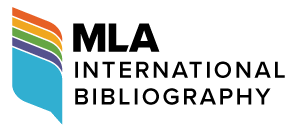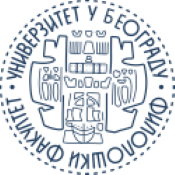The Fictionalization of Nazi Ideology in Roberto Bolaño’s Novels
DOI:
https://doi.org/10.18485/beoiber.2022.6.1.4Abstract
The purpose of this paper is to analyze the fictionalization of Nazi ideology in the Roberto Bolaño’s novels. The corpus includes three novels: The Third Reich (1989), Nazi Literature in the Americas (1996) and Distant Star (1996). We will employ comparative method in order to analyze the literary devices used by Bolaño as a way of elaborating the question of Nazi ideology. We will focus on the representation of nazism, fictional nazi characters and the relation between this topic and other preoccupations of Bolaño’s work. Our hypothesis is that, besides the art, the political and historical reality is the main obsession in the opus of Bolaño. The three selected novels will be observed as three models of the fictionalization of Nazi ideology: ludic, pseudoliterary-scientific and avant-garde. Through the examples from the novels, we will explain why the nazism holds the central position in Bolaño’s work and how this author transforms the fiction into reality and vice versa.References
Aguilar, Paula. «Libros de arena, desiertos de horror: la narrativa de Roberto Bolaño.»Tesis Doctoral. Universidad Nacional de La Plata, 2013. FaHCE UNLP. Web. 23 Jun. 2021.
Benjamin, Walter. «Umetničko delo u veku svoje tehničke reprodukcije.» Prev. Milan Tabaković. Eseji. Miloš Stambolić (ur.). Beograd: Nolit, 1974. 114-149. Štampano.
Bodrijar, Žan. Simulakrumi i simulacija. Prev. Frida Filipović. Novi Sad: Svetovi, 1991. Štampano.
Bolanjo, Roberto. Udaljena zvezda. Prev. Igor Marojević. Novi Sad: Svetovi, 2004. Štampano.
―. «O sebi.» Polja 504 (2017): 61. Štampano.
Bolaño, Roberto. Estrella distante. Barcelona: Anagrama, 1999. Impreso.
―. El Tercer Reich. Barcelona: Anagrama, 2010. Impreso.
―. La literatura nazi en América. Epub libre, 2014. Epub libre. Web. 15 Nov. 2020.
Delgado Chavarría, Emilio. «La escritura como actitud: Roberto Bolaño contra el esprit de sériux. Lectura de la novela El Tercer Reich». Revista de Filología 35 (2017): 107-129. Web. 18 Oct. 2020.
Dickov, Vesna. Hispanoamerička književnost: od postmodernizma do postbuma. Beograd: Filološki fakultet, 2016. [Дицков, Весна. Хиспаноамеричка књижевност: од постмодернизма до постбума. Београд: Филолошки факултет, 2016. Штампано.]
Donoso, Ángeles. «Depurar la poesía de la poesía misma: poesía, política y muerte en Estrella distante de Roberto Bolaño». Working Papers in Romance Languages 1.2 (2007): 1-12. Web. 18 Jun. 2021.
Franz, Carlos. «“Una tristeza insoportable”. Ocho hipótesis sobre la mela-cholé de B». Bolaño salvaje. Edmundo Paz Soldán y Gustavo Faverón Patriau (eds.). Barcelona: Candaya, 2013. 99-111. Impreso.
Ivankovac, Davor. «Tradicija romanesknog ludizma i radikalnog (pre)oblikovanja forme». Polja 504 (2017): 137-140. Štampano.
Jennerjahn, Ina. «Escritos en los cielos y fotografías del infierno. Las “acciones de arte” de Carlos Ramírez Hoffman, según Roberto Bolaño». Revista de crítica literaria latioamericana 56 (2002): 69-86. Web. 16 Jun. 2021.
Kovačević Petrović, Bojana. «Ratne taktike Roberta Bolanja». Polja 504 (2017): 129-136. Štampano.
López-Vicuña, Ignacio. «Malestar en la literatura: escritura y barbarie en Estrella distante y Nocturno de Chile de Roberto Bolaño«. Revista chilena de literatura 75 (2009): 199-215. Web. 23 Jun. 2021.
Luche, Laura. «La imagen de las vanguardias en La literatura nazi en América de Roberto Bolaño». Boletín Millares Carlo 30 (2014): 342-349. Web. 18 Oct. 2020.
Marinescu, Andreea. «Dialoguing Across Catastrophes: Chilean Post-Coup and Post-Dictatorship Cultural Production in the Works of Roberto Bolaño and Raúl Ruiz.» Doctoral Thesis. University of Michigan, 2010. ResearchGate. Web. 23 Jun. 2021.
Monroe, Jonathan. «Los amores y juegos del joven Berger». Bolaño salvaje. Edmundo Paz Soldán y Gustavo Faverón Patriau (eds.). Barcelona: Candaya, 2013. 487-506. Impreso.
Paz Soldán, Edmundo. «Roberto Bolaño: Literatura y apocalipsis». Bolaño salvaje. Edmundo Paz Soldán y Gustavo Faverón Patriau (eds.). Barcelona: Candaya, 2013. 11-30. Impreso.
Poblete Alday, Patricia. «El balido de la oveja negra: la obra de Roberto Bolaño en el marco de la Nueva Narrativa Chilena.» Tesis Doctoral. Universidad Complutense de Madrid, 2006. Biblioteca UCM. Web. 18 Oct. 2020.
Ríos Baeza, Felipe Adrián. «Wieder, wider, weiden: casos de parodia y autoparodia en la narrativa de Roberto Bolaño». Valenciana 14 (2014): 59-87. Web. 12 Jun. 2021.
Simunovic Díaz, Horacio. «Estrella distante: Crimen y poesía». Acta literaria 33 (2006): 9-25. Web. 18 Oct. 2020.
Wolfenzon, Carolyn. «El Tercer Reich y la historia como juego de guerra». Bolaño salvaje. Edmundo Paz Soldán y Gustavo Faverón Patriau (eds.). Barcelona: Candaya, 2013. 204-228. Impreso.
Downloads
Published
How to Cite
Issue
Section
License
Copyright (c) 2022 Ana Huber

This work is licensed under a Creative Commons Attribution-ShareAlike 4.0 International License.
Authors who publish with this journal agree to the following terms:
- Authors retain copyright and grant the journal right of first publication with the work simultaneously licensed under a Creative Commons Attribution-ShareAlike 4.0 International License that allows others to share the work with an acknowledgement of the work's authorship and initial publication in this journal.
- Authors are able to enter into separate, additional contractual arrangements for the non-exclusive distribution of the journal's published version of the work (e.g., post it to an institutional repository or publish it in a book), with an acknowledgement of its initial publication in this journal.
- Authors are permitted and encouraged to post their work online (e.g., in institutional repositories or on their website) prior to and during the submission process, as it can lead to productive exchanges, as well as earlier and greater citation of published work (See The Effect of Open Access).













